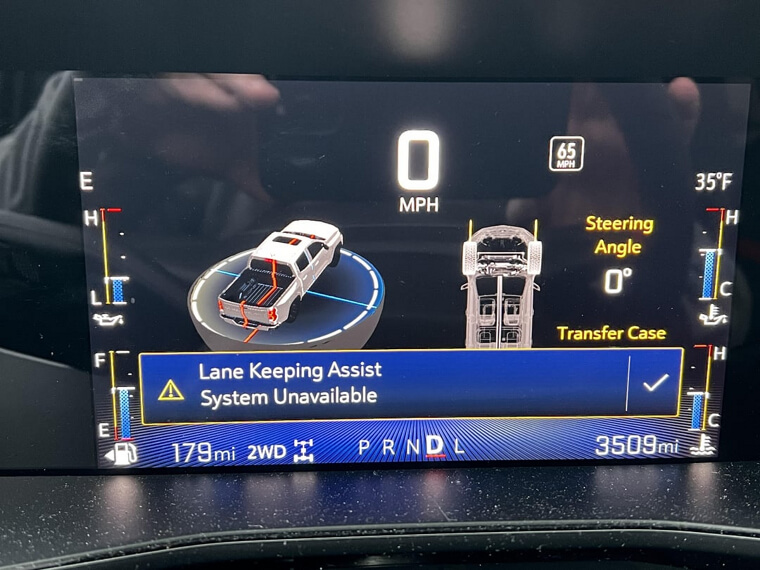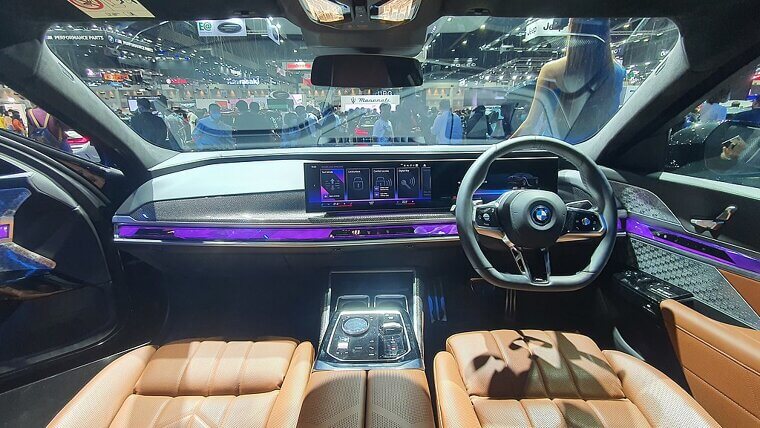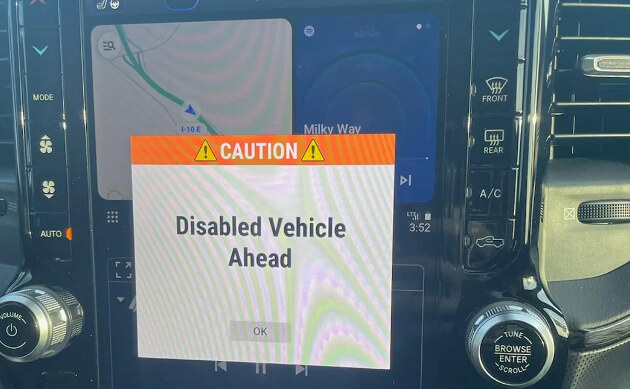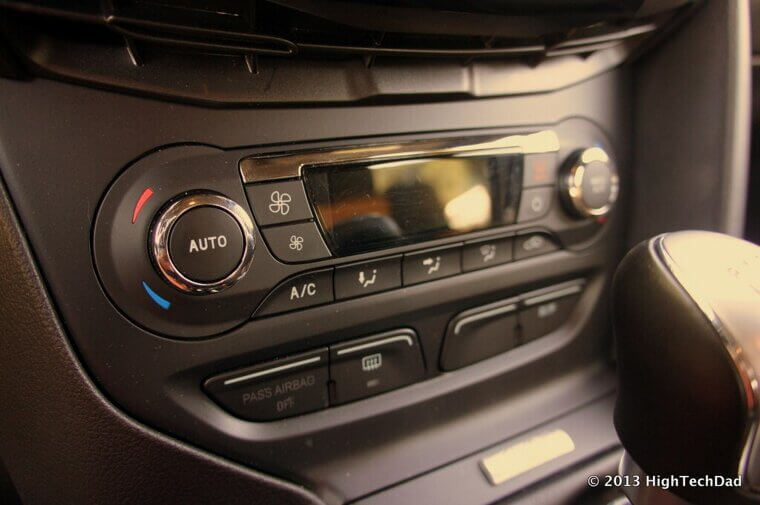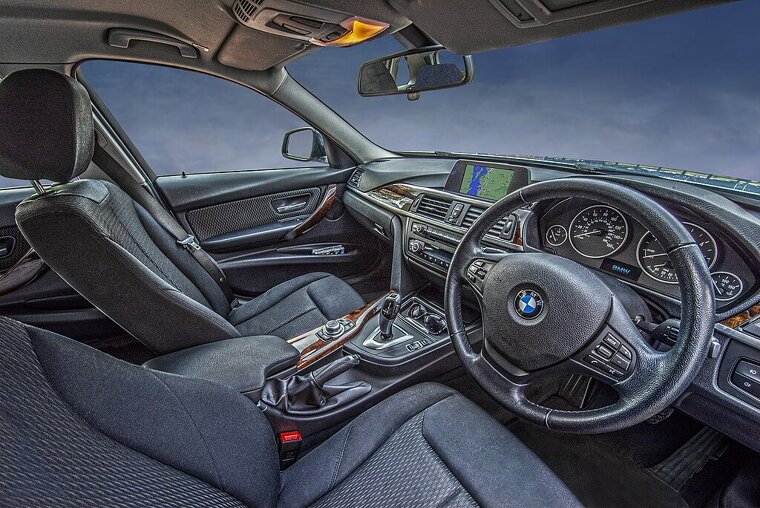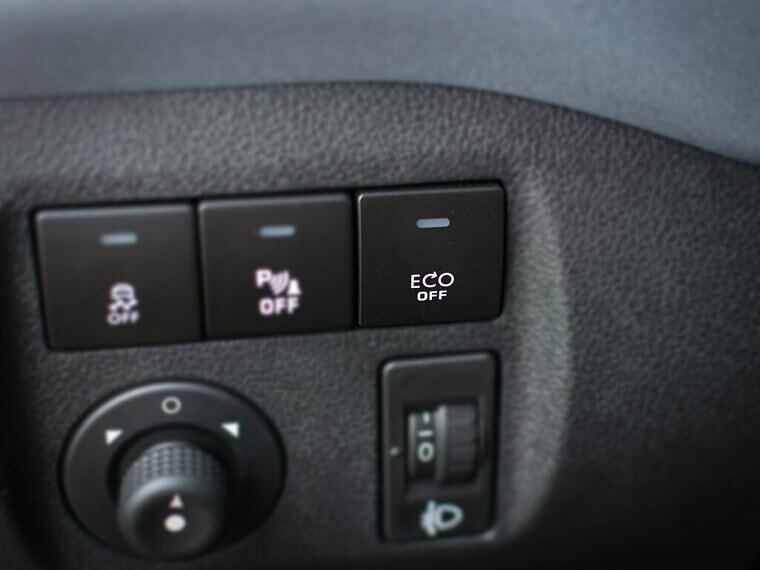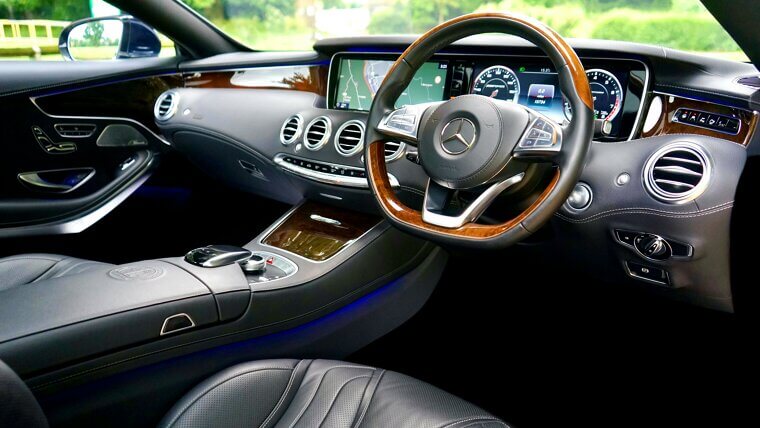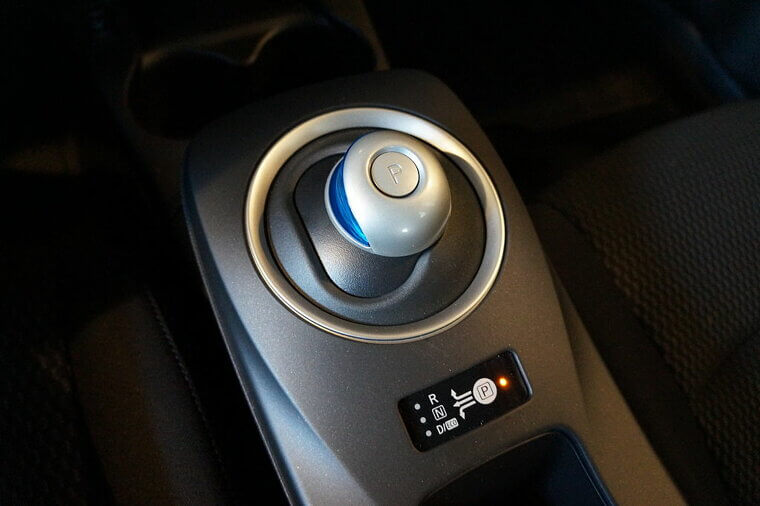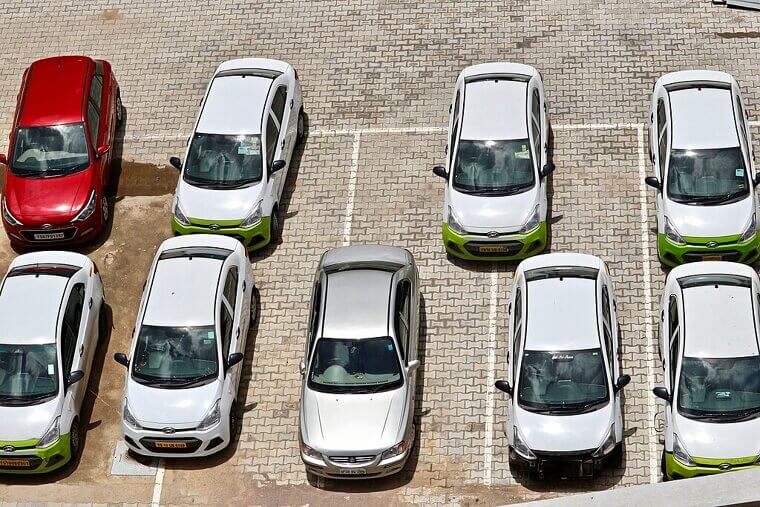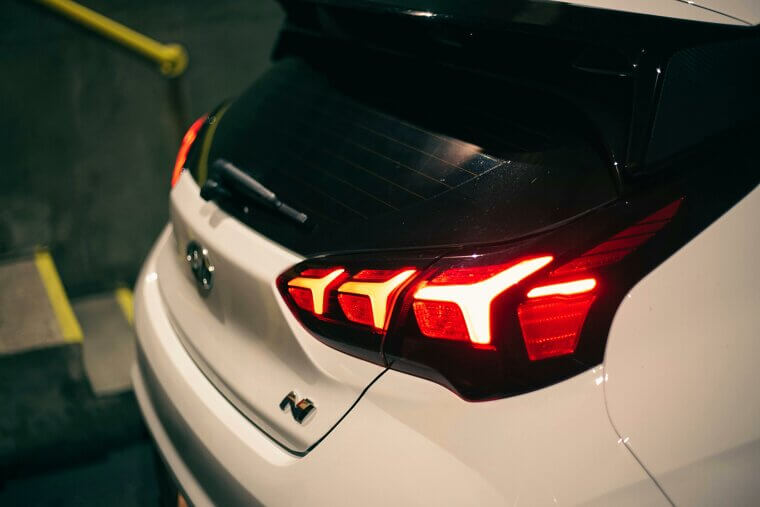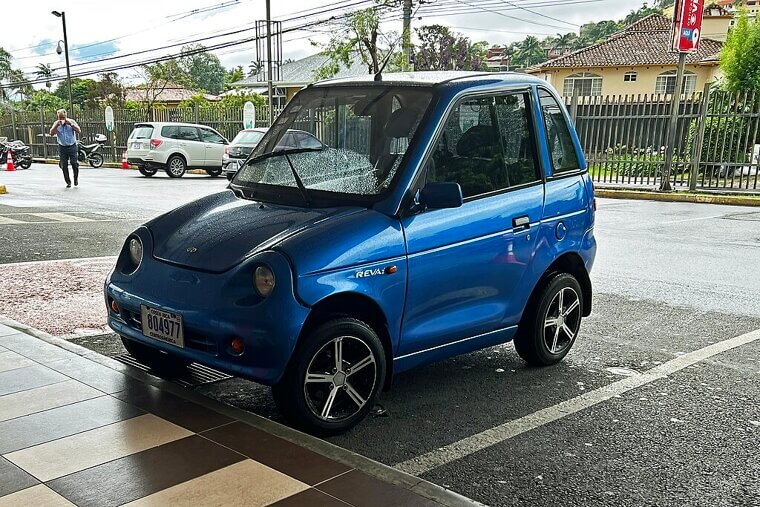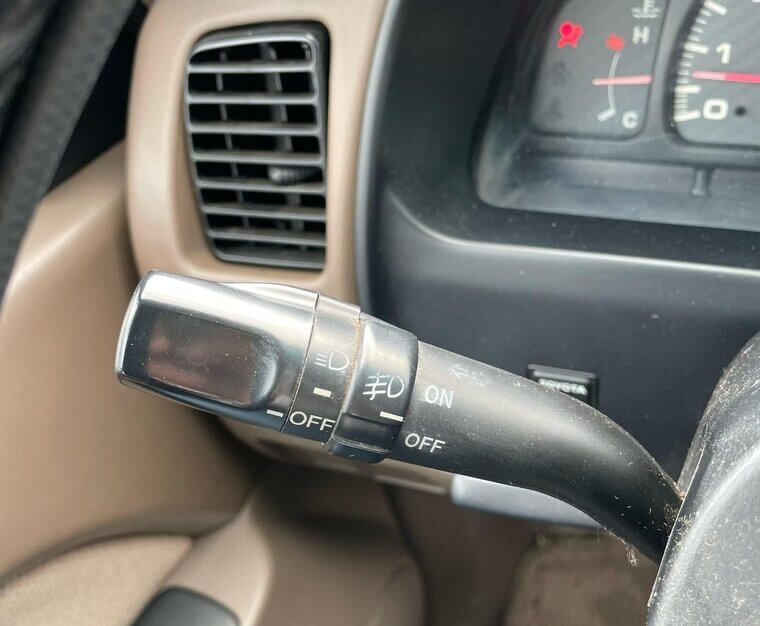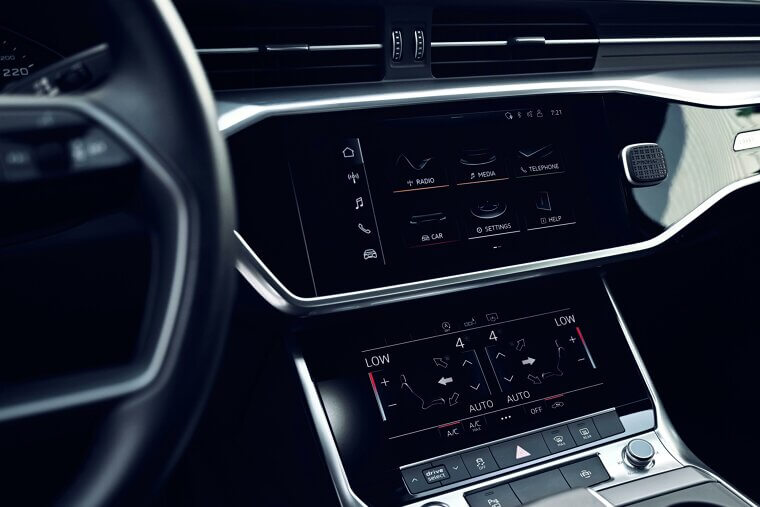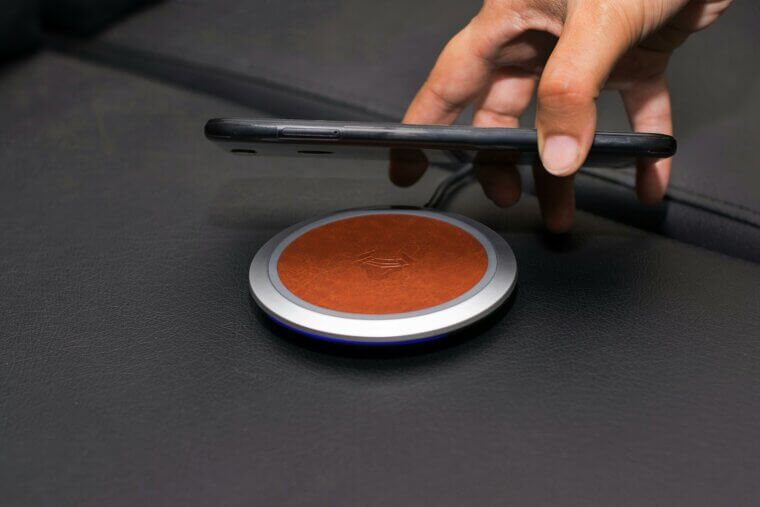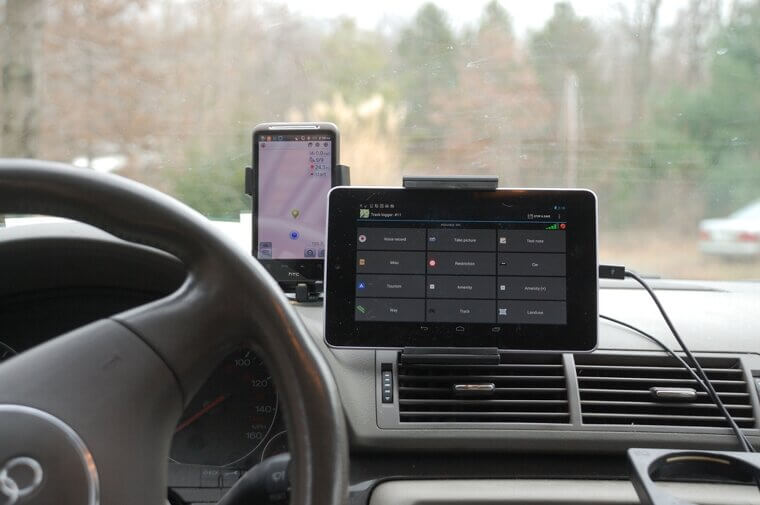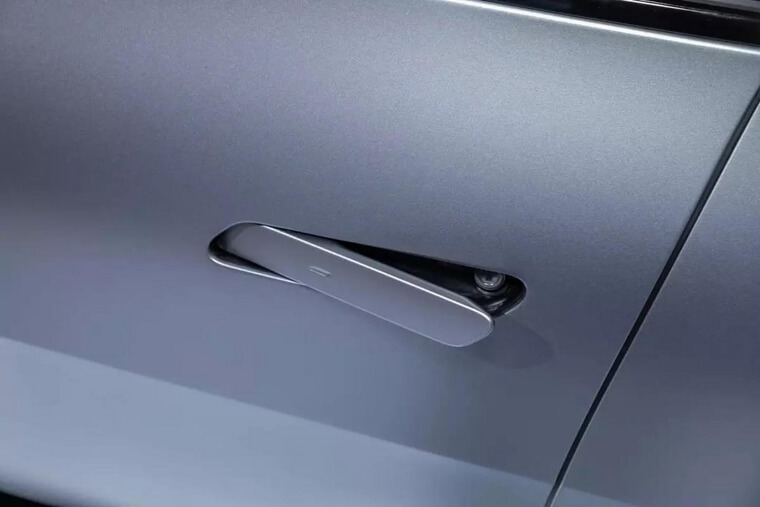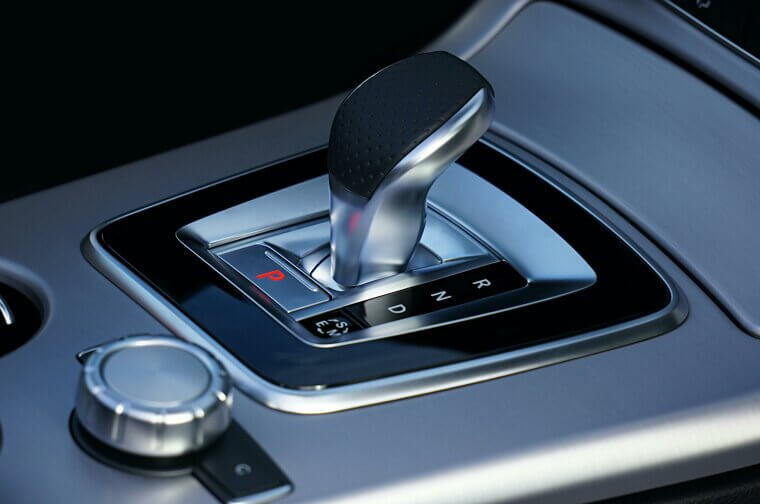Lane Departure Warnings
While it’s an option in most cars, forced lane departure warnings can be a nightmare. If you’re a confident driver and you’re constantly being told when you drift even slightly towards the edge of a lane it can really undermine you.
Overly Complicated Infotainment Systems
Infotainment systems are common in vehicles now, but they shouldn’t require a degree in computer science to work. Some are so complicated it feels like you’re lost in a maze of menus just trying to get a song you want.
Excessive Safety Alerts
Safety alerts are a good thing. Overly excessive ones are not. Do you really need a chime to let you know there’s someone crossing the road in front of you when you’re miles away? Or alerting you to a head-on collision with a vehicle on the other side of the road? Maybe not.
Touchscreen Climate Controls
Remember the days when you could just hit a button to turn air conditioning on and off? Modern options definitely have more variety, yet they make you jump through hoops to raise and lower the temperature of your vehicle. Keep it simple please, car manufacturers.
Voice Recognition Systems
Oh, these things can be bad. There’s been countless examples where voice recognition systems can’t detect accents or speech impediments, and the last thing you want to do is try to call home and end up with a loan. When they work they’re great, when they don’t, we hate.
Auto Stop-Start Systems
Reducing emissions is great for the environment, but there are occasions when you don’t want your car to suddenly cut out at every red light you stop at. Again, it’s fine if you can turn this system off, but when it’s forced on you it’s a real hair-puller.
Touch-Sensitive Buttons
Welcome to the future, where you can activate buttons by moving a hand in front of them… whether you want to or not! We’re talking about the hyper-sensitive ones here, that blast you with cold air conditioning in the middle of winter while you’re reaching for the radio.
Adaptive Cruise Control
Unfortunately, when it’s done wrong adaptive cruise control can feel like you have the world’s most nervous backseat driver who insists on taking the wheel whenever they panic. Sudden brakes, changes in speed and misreading speed limits are all in a day’s work for a jumpy cruise control system
Gesture Controls
At first, pretending to be a wizard to control your car might be fun. Until you have to do it all the time, for everything. Gesture controls can be fickle too, so you could end up with a completely different result than the one you were aiming for… or nothing at all.
Automatic High Beams
The meaning of flashing headlights - and the legality - varies from region to region, but it’s usually used to alert others who may not have noticed your vehicle. If your high beams decide to turn on automatically, it can confuse (and enrage) other drivers, or even potentially cause accidents!
Electronic Gear Shifters
For those used to older vehicles especially, a lot of new tech can be a nightmare, and electronic gear shifters are no exception. They lack the tactility of traditional gears, which can lead to mishaps or even accidents. For some drivers, they’re more trouble than they’re worth!
Inaccurate Parking Sensors
When they’re implemented properly, parking sensors can be a useful tool; inaccurate ones are just added stress, though. Some of them detect things that aren’t there, or miss objects that are either too high or low. Sometimes, it’s best to rely on your own experience.
Blind Spot Monitoring
Blind spot monitoring can be either too sensitive or not sensitive enough. In the first instance, it might detect something in the next parking space, and in the second fast-moving vehicles can fool it. Bad weather makes it malfunction, too.
Complicated Bluetooth Pairing
Pairing’s just a case of pressing a few buttons to sync your smartphone with your vehicle’s bluetooth right? Tthat would be too easy! Pairing your devices can be a needlessly complicated affair that makes you want to call tech support just to play your favorite tunes.
Autonomous Parking Assist
Having a car that parks itself sounds like a sci-fi dream! And it is. Real-world application is kind of disappointing, and often has to coincide with very strict size and alignment requirements, so it might ignore your driveway or decide a leaf in the parking lot has taken up a potential space.
Proximity Alarms That Trigger Too Easily
Proximity alarms are a boon… when they’re not feeding you misleading information. False alerts informing you that you’re too close to other cars when you’re in a tight traffic scenario can really put you on edge and blow the situation out of proportion.
Annoying Seatbelt Chimes
When you’ve just got into your vehicle and you’re idling, or if you’re doing some checks before putting on your seatbelt, the last thing you need is a bonging noise telling you you have to buckle up now or it’s the end of the world.
Poor Reversing Cameras
A camera that can help you reverse is awesome in theory. When they’re so super-low resolution that you can’t identify anything on them or they’re positioned in such a way that they’re completely unhelpful, it’s a waste of a great idea. Implementation is key!
Bad Touchscreens
The 1981 Chrysler Imperial was the first car touchscreen and they’ve come a long way - for the most part! There’s still lots of bugs to iron out though, including glitchy software, overheating issues that render them unusable for time, or unresponsive interfaces. That. Just. Won't. Tap.
Slow Electric Tailgates
A good electric tailgate can make your life a lot easier, while a bad one can make you reevaluate your life choices. They can open so slowly, it’s like time has stopped, or even give you variable speeds depending on… well, who knows?
Fake Engine Noise
Fake engine noises simulate real engines using sound devices. They’re partially designed to warn pedestrians that a noiseless EV is coming, but since the sound’s artificial, it doesn’t always sync with the car’s movements, annoying drivers and misleading pedestrians.
Automatic Headlights
Headlights that turn on automatically? A great idea, often a misfire. They can misread light levels and activate when you don’t want them to, or blind other evening drivers by being too bright. They don't always turn off either, draining your parked car’s battery.
Overly Sensitive Tire Pressure Monitoring Systems
Tire Pressure Monitoring Systems (TPMS) often fail in real-world applications. Not only do ambient temperature changes affect your tire pressure leading to misleading alerts, but TPMS can give you false alarms and misreadings due to hypersensitivity or system glitches.
Distracting Heads-Up Displays
If you’re not supposed to read while driving, you probably shouldn’t be bombarded with too much information on your HUD either. There are systems that overload you with details even when you don’t need them, distracting you from the road.
Inconsistent Wireless Charging Pads
Wireless charging pads have one job, and sometimes they can’t do it! They’re not as powerful as wired connections so they might not have enough power, or they’re incompatible with your phone despite a “universal” claim, but regardless, wireless charging pads can be fickle.
Complex Driver Profile Settings
Having a car set up to drive just the way you like would be amazing, especially if you happen to share it with someone who’s got different driving preferences. These things tend to be overwhelming though, and sometimes can’t tell who’s driving them.
Unreliable GPS Navigation Systems
GPS aren’t the most reliable devices - especially if you forget a system update or they’re relying on maps that haven’t been modernized. They can really take you on a wild goose chase.
Pop-Out Door Handles
While pop-out door handles seem very futuristic, when they don’t work the future doesn’t hold a lot of driving. Bad weather can cause the mechanism to freeze, or dirt and debris can interrupt the mechanism, then you’re left out in the cold.
Volume-Down Reversing
If your car has reversing assistance, it probably has volume-down systems too, so you can hear your alerts. Not everyone wants their music interrupted at the first sign of backing up, and the plunge from a good vibes into alerts can be bleeping jarring.
Automatic Window Controls
Automatic features often don’t know when to stop, as is the case with window controls. They don’t seem to know how far up or down you want the windows, negating their use entirely - and some don’t have a “stop” button, either!
Driver Attention Monitor
These systems are designed to make sure you’re paying attention to the road. They tend to be overly sensitive though, and consider a shift in position as signs of sleep, or checking a mirror as not watching the road.
Traffic Sign Recognition
Potentially over-controlling, when traffic sign recognition goes wrong, it overwhelms you with complicated alerts. Some of them could be from outdated signs or provide misleading information, so forget to update them and you’ll hear about it.
Overzealous Emergency Braking Systems
It’s trying to save your life at least, but if your emergency brake system is sensitive, it can kick in at the least little sign of a potential “obstacle” and slam on the pause button like your life depended on it - even when it doesn’t.
App-Dependent Features
Apps are modern, we get it, but do you really need to sign up for one by creating a user name, profile and providing an email address for every single feature?
Subscription-Based Features for Built-In Tech
Subscriptions are cost creep at their worst. Your car comes with all this tech, then you discover you can only use it if you pay a monthly or annual free? Thank you, daylight robbery.

